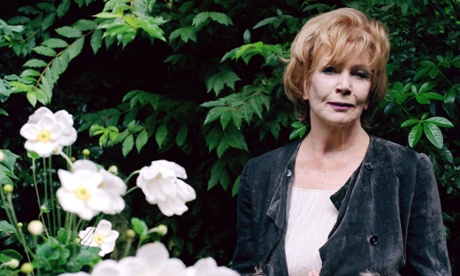
“Everyone in our village was unique and one or two of the girls were beautiful,” opens The Scandalous Woman, one of the earlier stories in this anthologised collection which spans near five decades of Edna O’Brien’s writing career. It’s a wrenchingly beautiful story, telling of a young Irish girl Eily whose spirited abandon and insatiable appetite for life captivate a younger girlfriend who aids and observes Eily’s personal downfall. When the two meet years later, the encounter is awkward, and what is lost is all too apparent. The story ends with the narrator’s thought: “Ours was indeed a land of shame, a land of murder and of strange sacrificial women.”
O’Brien has herself known sacrifice and escape, having broken ties with her County Clare origins, her own family, and ultimately her Irish homeland after her first novel The Country Girls, published in 1960, was banned and publicly burned in Ireland for daring to speak of female sexuality and desire. Her land and its people fuel these stories, most notably the females. O’Brien writes of women sublimely – mothers, daughters, mistresses, nuns, schoolgirls, widows. No wonder juror and writer Thomas McCarthy, on awarding O’Brien the Frank O’Connor prize in 2011, called her “the Solzhenitsyn of Irish life – the one who kept speaking when everyone else stopped talking about being an Irish woman”.
Her female characters are presented with extraordinary compassion, their vulnerabilities achingly apparent; the lonely nun in Sister Imelda, for example, who strikes up an illicit friendship with one of her schoolgirl pupils. Or the mother in My Two Mothers, a story with notably autobiographical elements, who writes hundreds of unanswered letters to her estranged daughter. In The Love Object we see the trajectory of a love affair and in strikingly direct prose witness the devastating effect it has on the attractive, single-mother narrator.
Men do occasionally have their moment in the limelight, for example in Shovel Kings, which investigates the now down-at-heel Irish workmen who came over to England in the 1960s and found work laying cables, but more often O’Brien’s males are amorphous figures, such as the older, married man who is the “love object” of the title story, or the millionaire lover in Paradise, symbolic more for the influence and power they wield over the central female characters.
O’Brien writes with a consistent elegance in these 31 stories, in beautifully cadenced, often humorous prose. For a writer who has claimed that writing becomes harder the older she grows, this anthology, collecting stories as recent as 2011, demonstrates that she has not lost an ounce of her talent.
The Love Object is published by Faber (£10.99). Click here to buy it for £8.79 with free UK p&p

